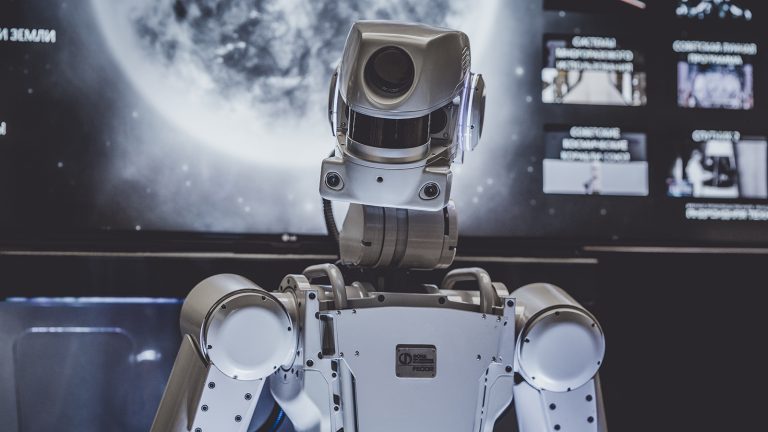Humanity is on the precipice of a technological revolution that has the potential to overhaul the way that our society looks, feels, and operates. What does artificial intelligence mean for the Church, and mankind’s collective morality as a whole? That’s what evangelical leaders recently set out to answer.
On April 11, 2019, the Ethics and Religious Liberty Commission unveiled their statement, “Artificial Intelligence: An Evangelical Statement of Principles” in Washington, D.C., with the goal of making this concise, heavily researched and immensely important document serve as the foundation for the Church’s ethical and moral stance on the groundbreaking new technology.

Panel discussion with, from left to right, national security expert Megan Riess, Institute on Religion and Democracy President Mark Tooley, president of the Southern Baptist Convention’s Ethics and Religious Liberty Commission Russell Moore, and ERLC Creative Director Jason Thacker.
The ERLC drew on the intelligence, experience and conviction of some of the brightest Evangelical scholars in the world and has received signatures from Christian thought leaders like Focus on the Family president Jim Daly, Resurgent editor Erick Erickson, and Karen Swallow Prior, a professor of English at Liberty University.
Proactively engage with AI
The statement covers a whole lot of ground and frames the subject in light of the Gospel.
“Christians must not fear the future or any technological development because we know that God is, above all, sovereign over history, and that nothing will ever supplant the image of God in which human beings are created. We recognize that AI will allow us to achieve unprecedented possibilities, while acknowledging the potential risks posed by AI if used without wisdom and care,” the preamble reads.
“We desire to equip the church to proactively engage the field of AI, rather than responding to these issues after they have already affected our communities.”
The comprehensive analysis presents its positions in the form of 12 separate articles and touches on the subjects of medicine, bias, privacy, sexuality, war, work, security, public policy and more.
Article 1 is entitled, “Image of God,” and makes it clear that the church, “[denies] that any part of creation, including any form of technology, should ever be used to usurp or subvert the dominion and stewardship which has been entrusted solely to humanity by God; nor should technology be assigned a level of human identity, worth, dignity, or moral agency.”
Tackling the prescient question of AI’s relationship with humanity, article 3 explicitly denies “[…] that humans can or should cede our moral accountability or responsibilities to any form of AI that will ever be created.”
There’s more. A lot more. And it is a pro-active reflection by the Church on a hot topic in 2019. We encourage you to read the statement over yourself and share your thoughts with us on Facebook or Twitter. Click the link right here to read, “Artificial Intelligence: An Evangelical Statement of Principles.”













